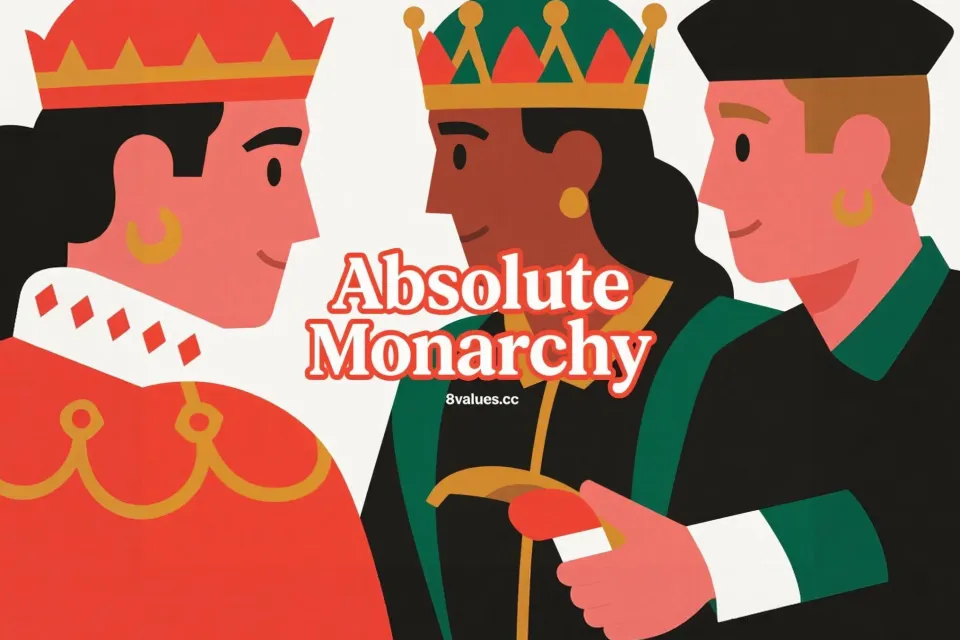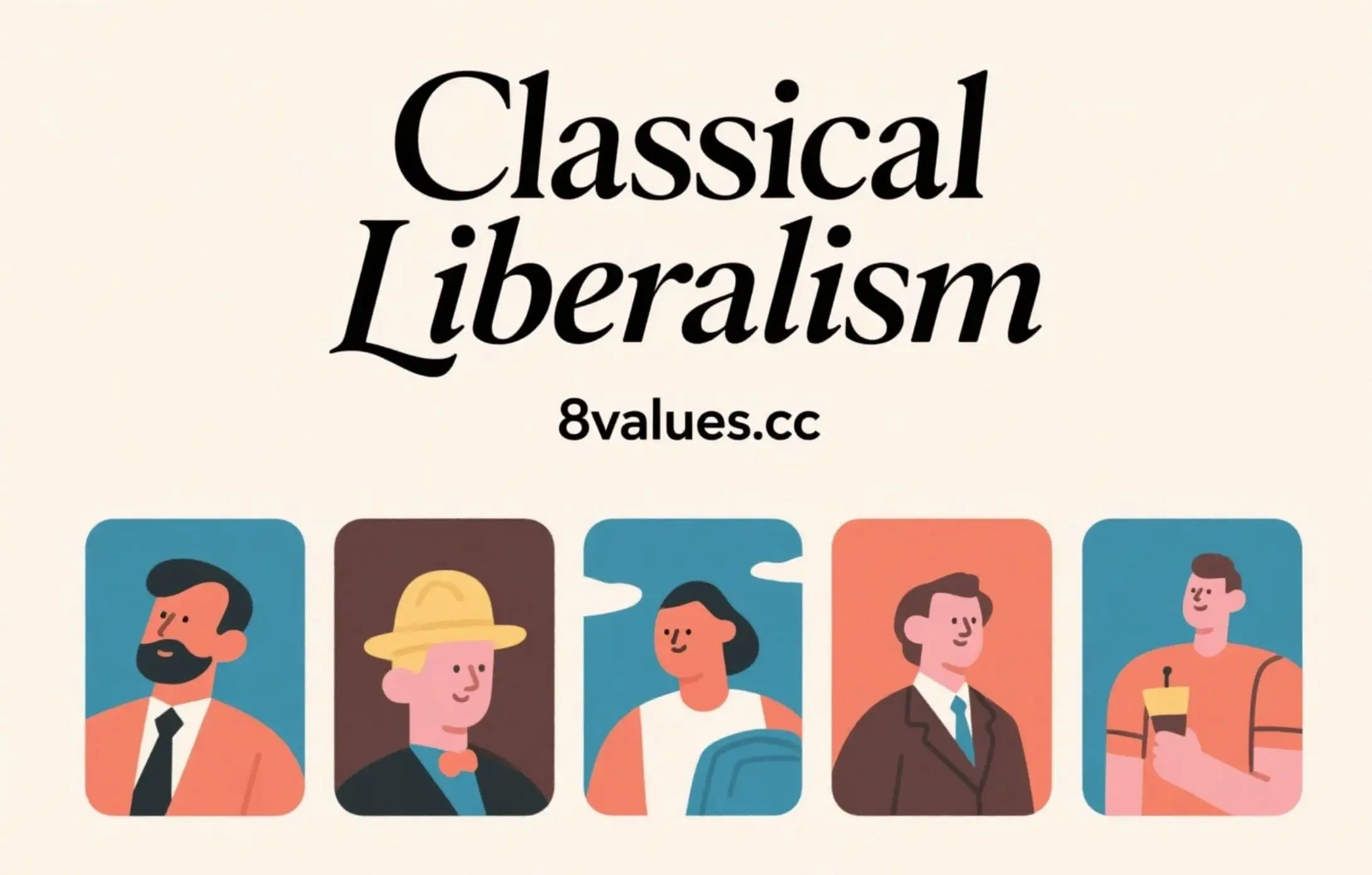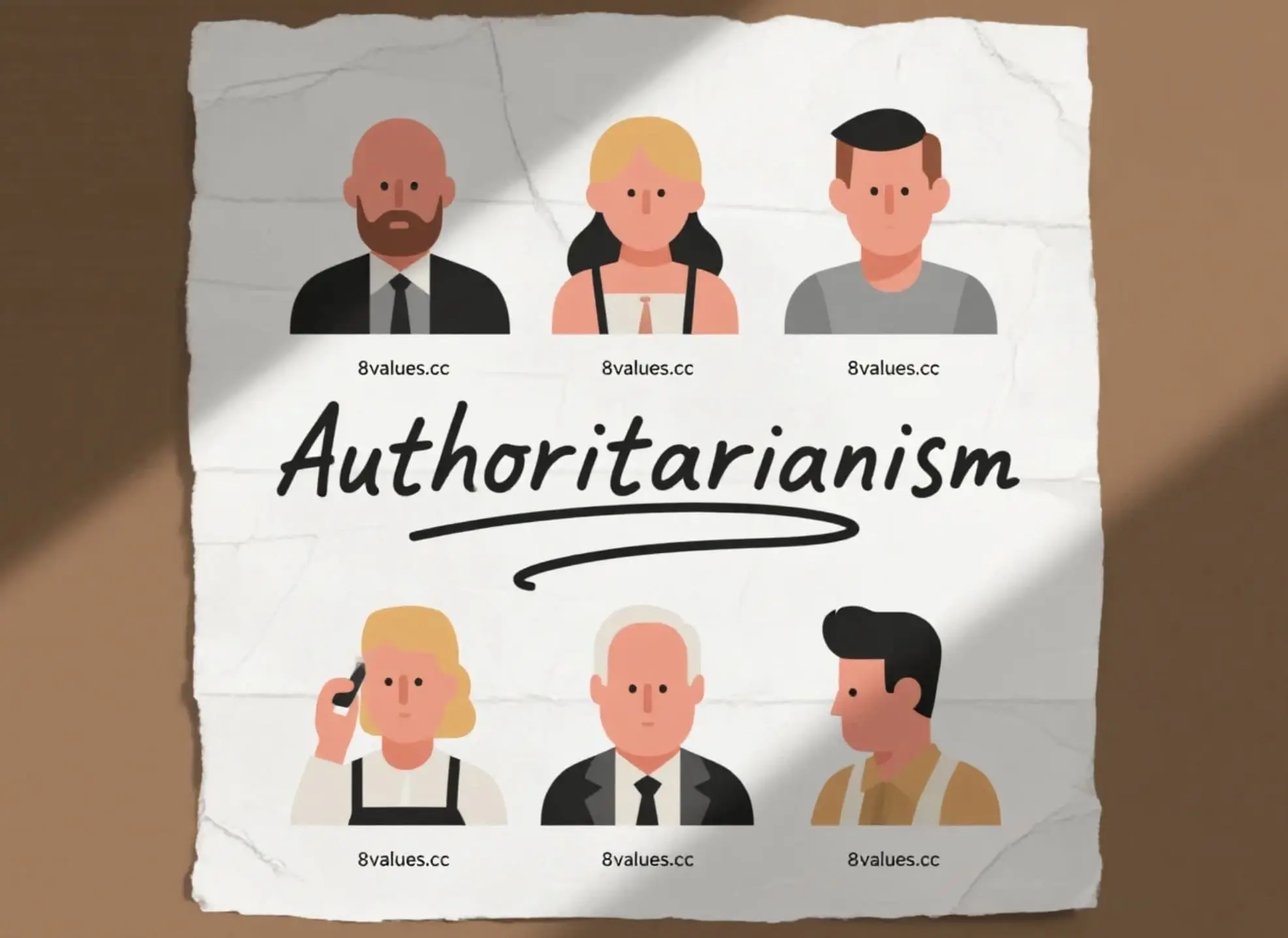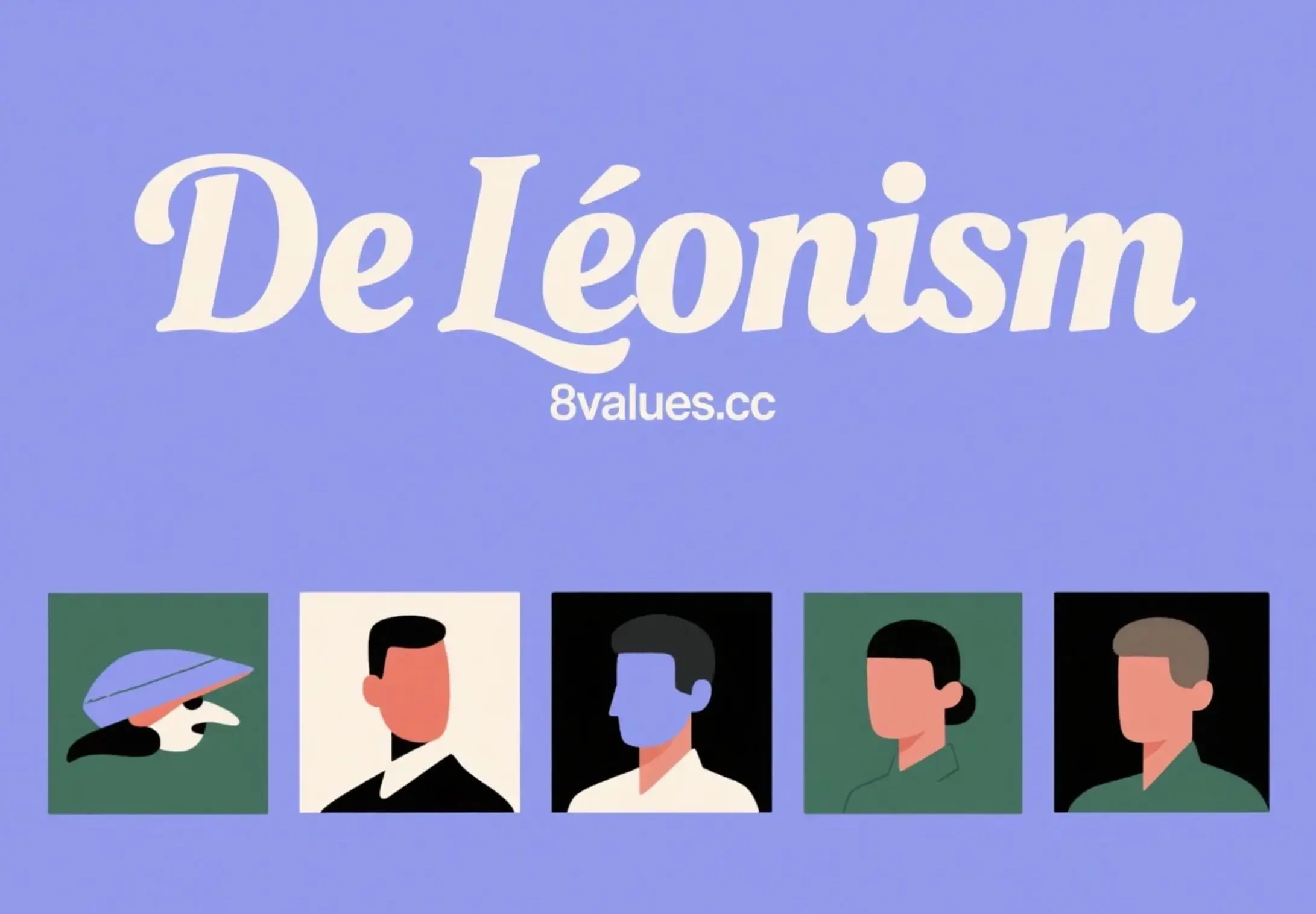Absolute Monarchism: The Rise, Fall and Political Legacy of Supreme Power
Absolute Monarchism is a form of government in which the monarch has complete, unrestricted power. This article deeply explores the origin of this system, the theoretical basis of the divine right of kings, the typical practice of the French "Sun King" Louis XIV, and its historical decline under the Enlightenment and the wave of democratization, to help you understand this ancient and far-reaching political form.
Absolute Monarchism , also known as Absolute Monarchy or autocratic monarchy , was an important political system in history. It is defined as a form of government in which a monarch (usually a king or queen) has complete and unrestricted power over his subjects. In this system, the authority of the monarch is not limited by laws, constitutions, or other governing institutions, and the ruler is able to make all major decisions about the country.
From the late Middle Ages to the early modern period of the 18th century, absolute monarchy occupied an important position in the political landscape of Europe. Its emergence marked the beginning of the modern state and shaped the trajectory of European history in many ways. If you're interested in different political ideologies and values, you can explore your political affiliations with tools like the 8Values Political Orientation Test or the 9Axes Political Ideology Test .
The definition and characteristics of Absolute Monarchism
The core features of an absolute monarchy are complete concentration of power and supreme sovereignty . The monarch is the sole source of national sovereignty and exercises all legislative, judicial and executive powers over the country.
Absoluteness and concentration of power
The concept of "Absolute kingship", or Absolute Monarchism , refers to a ruler or leader who has complete power and authority over the country. In this system, the monarch is not accountable to anyone, and power is not checked or balanced by any institution.
For example, King Louis XIV's famous (although probably misrepresented) statement: "L'état c'est moi" (" I am the state ") embodies this idea of supreme state power concentrated in the monarch.
Inheritance and bureaucracy
The inheritance of power in an absolute monarchy is usually hereditary and passed from generation to generation, ensuring stability and predictability of leadership. Monarchs inherit the throne through blood, forming dynastic rule. This pattern of succession was considered to provide continuity and predictability, helping to maintain the stability of the kingdom.
In order to effectively rule a vast territory, especially those far away from the capital, an absolute monarch needed to establish a large and complex bureaucracy to assist in management. These officials were appointed by the monarch and his advisors and were responsible for a variety of matters including collecting taxes, enforcing laws, and maintaining order in the kingdom. In addition, absolute rulers also relied on strong standing armies , which often required the establishment of extensive tax systems to sustain military spending.
In terms of economy, absolute monarchies in early modern times often pursued mercantilism , a policy that regarded economic development and trade as war-like, believing that the wealth in the world was limited and fixed, and the victory of one kingdom meant the loss of other kingdoms. Mercantilist policies played a key role in maintaining the absolutism of early modern Europe.
Divine right of kings: the theoretical cornerstone of absolute rule
In a religious context, the theory of divine right of kings is one of the oldest and most solid defense mechanisms for absolute monarchy.
divine source of power
The theory of divine right of kings maintains that the king's power comes directly from God, and only God can judge the king's behavior. Therefore, to disobey the king is to disobey God. As the famous French bishop and theologian Jacques-Bénigne Bossuet explained, "Kings are God's servants and His agents on earth. It is through them that God exercises His rule." Bossuet believed that the throne was not the throne of mortals, but "the throne of God himself," which endowed the monarch's rule with a divine purpose that transcended mortal challenge or scrutiny.
Bossuet was a famous French bishop, theologian and orator in the 17th century. He strongly supported the theory of the divine right of kings. His teachings profoundly influenced the reign of French King Louis XIV. Bossuet also put forward the view that "kingship is paternal power ", which means that the relationship between the king and his subjects is similar to the relationship between a father and his children. A father leads his family (i.e., his country) out of love and compassion, and a king acts in the best interests of his “children.”
responsibility and obedience
Although the monarch was considered to be above human judgment and answerable only to God, Bossuet also emphasized the need for kings to " tremble " in exercising their God-given power. However, the theory of divine right of kings requires unconditional obedience from subjects to the will of the monarch. Bossuet believed that even if rulers failed to perform their duties, subjects must still respect their positions and missions, and even if the monarch made obvious excesses or seemingly unwise decisions, subjects must obey because the monarch's authority was based on divine recognition.
The Rise of Absolute Monarchy and Historical Examples
The rise of absolute monarchy in modern Europe was the result of a variety of historical factors.
Historical Background: Crisis and Centralization
In the European Middle Ages, power was dispersed among the nobility, church, and kings. However, with the collapse of feudalism, the chaos and instability brought about by religious wars such as the Thirty Years' War, and social unrest, there was an attraction to strong, centralized leadership. The textbook "Western Civilization" states that after so much chaos and instability, "monarchy must be elevated above the daily disputes of politics." Monarchs took advantage of these circumstances to consolidate power by creating standing armies, replacing old legal relationships, and emphasizing shared obedience to an increasingly depersonalized state.
Political scientists such as Thomas Hobbes defended absolute monarchy during this period, arguing that absolute universal obedience was necessary to maintain social order and security.
European Typical Monarchs (Absolute Monarchs)
Absolute monarchy reached its peak in the late 17th century, especially in France, Russia, Prussia and other places.
- King Louis XIV : Known as the " Sun King ", he was the epitome of absolutism. Under his rule, royal power was consolidated, and he firmly upheld the idea of the divine right of kings. He demonstrated the majesty and glory of his royal power by building the magnificent Palace of Versailles, while at the same time weakening the power of the nobility and excluding them from the inner circle of government. French culture under Louis XIV, especially art, literature, and science, was used as a tool to consolidate royal power and national prestige.
- Peter the Great : Absolute monarch of Russia who modernized the country, expanded its territory, and centralized power.
- Frederick the Great : King of Prussia, he pursued the concept of " enlightened absolutism " and positioned himself as "the first public servant of the state". Despite this, his rule still embodied many important characteristics of absolutism.
- Charles I : King of England and Scotland, attempted to enforce the principle of divine right of kings, leading to the English Civil War, although he ruled for 11 years after dissolving Parliament.
- Philip II : King of Spain who ruled the largest empire in the 16th century and was regarded as the protector and defender of Catholicism.
By comparing the characteristics of different political systems, such as the ideological differences revealed by the LeftValues left-wing political values test and the RightValues right-wing political spectrum test , it is helpful to understand the uniqueness of absolute monarchy in history.
The Limitations and Decline of Absolute Monarchy
Although absolute monarchy brought stability and unity during certain historical periods, its inherent structural flaws and changing times ultimately led to its decline.
Constraints on power and compromise with reality
Although the monarch's power is theoretically absolute, historians point out that the word "absolute" can be misleading. In fact, no monarch can exercise power completely unfettered. The absolute monarch is still limited by tradition, custom, religion , and local nobility and law. Those rulers who are called "absolute monarchs" are often monarchs who are adept at maneuvering between different classes and bypassing these restrictions.
Furthermore, there is debate among historians as to the extent to which European monarchs achieved absolute control. Some scholars believe that the actual power of many so-called "absolutist" monarchs is not much higher than that of other non-absolutist rulers. They often face severe financial difficulties and find it difficult to tax the richest classes.
Enlightenment and democratization
The decline of Absolute Monarchism began with the rise and spread of Enlightenment ideas. Enlightenment thinkers emphasized individual freedom, progress, and rationality and began to challenge the unlimited power of the monarch.
- Challenging authority: Philosophers such as John Locke proposed the social contract theory, arguing that the government's responsibility is to protect the freedoms and rights of citizens, and believed that absolute monarchy was an illegitimate form of government. Montesquieu advocated the separation of powers and opposed any form of abuse of power.
- Revolutions break out: Enlightenment ideas profoundly influenced subsequent political revolutions, including the American Revolution (1775-1783) and the French Revolution (1789-1799). These events permanently changed the political landscape and spurred the development of constitutionalism , the idea of limiting the power of the monarch through constitutions.
- The end of history: With the impact of democratic trends in the late 18th and early 19th centuries, most European countries turned to constitutional monarchy. The Russian Empire abolished tsarist autocracy in the early 20th century, becoming the last major country in Europe (except the Vatican) to abolish absolutism.
The Current Situation of Contemporary Absolute Monarchism
Although absolute monarchy is no longer a mainstream political system around the world, it has not completely disappeared. In a few countries and regions, the monarch still retains absolute power that is not limited by the constitution or parliament.
Existing absolute monarchy
According to available information, there are still a few absolute monarchy (Absolute Monarchism) countries in the world, mainly concentrated in the Middle East and a few micro-states:
- Saudi Arabia : Under its Basic Law, the king must abide by Sharia (Islamic law) and the Koran, but there is no modern written constitution and no national elections.
- Oman : The Sultan is simultaneously the head of state, head of government, supreme commander of the armed forces and prime minister.
- Brunei : The Sultan combines the positions of head of state, prime minister, minister of defense and minister of finance.
- Swaziland (Eswatini): The king has absolute power to remove the prime minister and dissolve parliament.
- Vatican City : The Pope is the absolute monarch of Vatican City, and its political system has the unique characteristics of a micro-state, ecclesiastical jurisdiction, and an elected monarchy .
- United Arab Emirates: The UAE itself is a federal monarchy, but its seven component emirates are all ruled by absolute monarchs.
Some countries, such as Liechtenstein, expanded the monarch's power through referendums at the beginning of the 21st century and were described by some media as " becoming an absolute monarch again ."
Analysis of the two sides of absolute monarchy
From a political point of view, absolute monarchy (Absolute Monarchism) has obvious advantages and disadvantages.
Potential advantages
An absolute monarchy provides strong and decisive leadership . With power concentrated in one hand, decisions can be made quickly, avoiding delays caused by political debates or conflicts. Furthermore, because leadership transitions smoothly through hereditary succession, absolute monarchies often provide political stability and a continuous source of authority . In some situations, the monarch can use his power to effectively enforce law and maintain order.
Significant defects
The main problem is the lack of checks and balances , which can lead to rulers making unjust or harmful decisions without dissent. Because the monarch has complete power, accountability is weak, increasing the risk of corruption or abuse of power. Furthermore, because monarchies are often hereditary, the quality of leaders is unpredictable, and subsequent monarchs may be far less capable or less concerned about the interests of the people than their predecessors.
To gain a deeper understanding of the distribution and checks and balances of political power, you can refer to other political stance tests, such as the 9Axes political ideology test on the official website of the 8Values political orientation test , which provides a multi-dimensional analysis of the political spectrum.
Conclusion
Absolute Monarchism, as an important political system that has existed for a long time in history, has far-reaching influence, especially in the exploration of state power, law and sovereignty theory. Although the reign of Louis XIV reached the pinnacle of absolutism, this model of governance was gradually phased out with the advent of the Age of Enlightenment, reminding us of the importance of checks and balances in governance today.
If you wish to continue exploring different political trends, or want to learn more about testing models for left- and right-wing political values, please visit other articles on our official blog and try the LeftValues test or the RightValues test .






